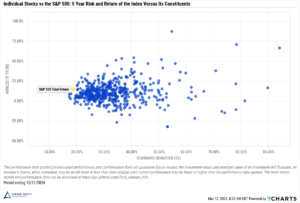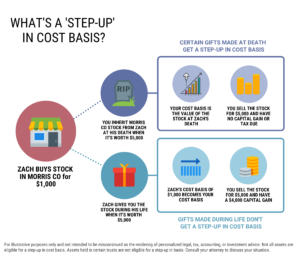Taxachusetts is back. In November 2022, proponents of the Massachusetts ‘millionaires’ tax won their bid to nearly double the income tax rate on individuals with taxable income over $1M a year. Since 2023, a 4% surtax is applied to taxable income and capital gains over $1M. Currently, Massachusetts taxes ordinary income and long-term capital gains at a flat 5% rate whereas short-term capital gains are taxed at 8%.
Importantly, this new surtax won’t just apply to perennial high earners. The ‘millionaires’ tax will also ensnare taxpayers who exceed the $1M limit after selling a home, business, stock options, or other types of one-time events. The $1M limit will be adjusted annually (essentially by inflation). In 2024, the surtax is triggered for taxable income over $1,053,750.
Article is a general communication only and should not be used as the basis for making any type of tax, financial, legal, or investment decision. Darrow Wealth Management doesn’t provide tax advice; consult your tax advisor to discuss your personal situation.
The MA ‘millionaire’ surtax applies to one-time sudden wealth events
Unfortunately for affected taxpayers in the Commonwealth, there may not be a lot of options to avoid triggering the surtax. And many taxpayers may not even realize the extra tax will apply to them.
Consider a few simple examples:
- A couple sells a home in 2023 they purchased 20 years ago for $2.5M. They paid $300,000 for the house. The home was their primary residence so the $500,000 federal home gain exclusion applies. Excluding any improvements they made to the home, realtor fees, etc., the taxable gain is $1.7M. The surtax will increase the Massachusetts tax liability by $68,000 on the sale of their home.
- A tech employee at a startup has stock options. The company is acquired, and the taxpayer receives cash in exchange for his stock options, putting him over the $1M annual limit. (It’s worth noting that the surtax will also apply to vesting restricted stock units and exercises of non-qualified stock options if income is above the $1M limit for the year).
- The Massachusetts surtax is also levied on non-MA sourced income, which is a big downside for residents of the Commonwealth with multi-state taxable income. This is a common scenario when individuals with equity compensation move.
The simple examples above only illustrate the state tax impact, but federal tax implications will also apply. Further, both examples ignore other sources of income, such as wages, pre-tax retirement account distributions, dividends, etc., that could increase the tax due from the surtax.
Tax planning strategies to reduce the impact of the Massachusetts Millionaire Tax
Depending on the situation, the 4% surtax may be unavoidable. But for others, there might be some strategies to consider. Here are a few to discuss with your tax and financial advisor:
- Rethink your MA residency. Changing your state of residency isn’t as simple as buying a second home in New Hampshire or Florida. But in certain situations, when done properly, it’s possible, and can be accomplished without giving up all ties to the state. Be aware of the complexities here, including when income could be sourced to MA even if no longer a resident. Business owners can also consider possible net savings of relocating outside of the Commonwealth. Taxpayers considering this approach are strongly advised to consult a CPA or tax attorney.
- Plan your income. For taxpayers with equity compensation or high-income individuals, consider working with your advisory team annually to discuss a strategy. Some examples include: timing stock option exercises and sales (particularly around year-end), an 83(b) election, increasing pre-tax contributions to a retirement plan, evaluating a non-qualified deferred compensation plan, charitable endeavors, timing of withdrawals from an inherited IRA, alternate tax filing status, and so on.
- Married couples, consider filing separately. The $1M income limit is the same for married and individual taxpayers. Therefore it may be advantageous for some married taxpayers to file separately to double the current $1M threshold. Taxpayers who elect to file separate MA tax returns may still be able to file jointly for federal tax purposes.
Though tax planning is important, it’s equally important not to let the tax-tail wag the dog. Financial decisions should be tax-conscious vs tax-driven. The ink is hardly dry, so new details will likely emerge about the practical application of the surtax and potential planning opportunities.
About Darrow Wealth Management
Darrow Wealth Management is a financial fiduciary and fee-only registered investment advisor in Boston and Needham, MA. We specialize in financial planning for an IPO, acquisition, or sale of a private business. Although we don’t provide legal or tax advice, through ongoing financial advice and asset management, we aim to help our clients make the most of a sudden wealth event.










